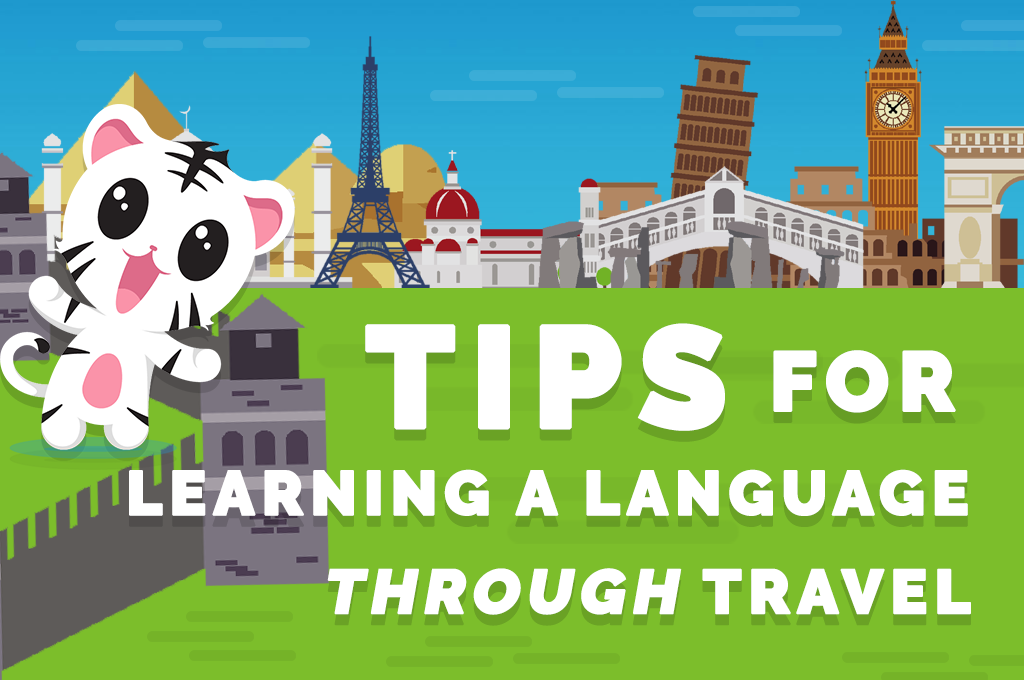Did you know that out of the 1.5 billion people that speak English in the world, only 330 million are native speakers? Mandarin has a whooping 900 million native speakers, Spanish has 470 million native speakers, and English has 330 million native speakers. With 7.4 billion people in the world, and a total of 6,500 languages spoken everyday, what does the rest of the world speak, and how much are you missing out on from not knowing them?

The benefits of learning a new language
The benefit of bilingualism isn’t just conversation exchange for convenience when you’re on holiday. Nor is the value just a boost for your CV and the option to study abroad while at university. The positive effects extend much wider! The ‘Daily Telegraph’ wrote an article about psychological cognitive testing for linguists, claiming that they are more perceptive, decisive, able to multi task to a higher proficiency, and better at memory retention!
The naturalistic approach is like learning as a baby
The naturalistic approach to language learning is becoming by far the most popular. It’s a method in which we imitate how we learned our mother tongue. Start by listening and reading to native speakers, and then imitate what you’ve heard and read in realistic situations. This will help you to absorb grammar and structure by association and context, not by rules and tables. What better way to do this than to learn a language through traveling!
Below is a list of handy tips on how to learn a language while you travel:
- Fluency is not key – “Don’t bite off more than you can chew”
It’s often suggested that being fluent in a second language is the key to communication success while traveling. This is not the case! Not to say that fluency wouldn’t be fantastic, but let’s be serious, who has the time to learn 6,500 languages? You don’t need to discuss politics in a foreign language. You just need enough of the language for the conversation exchange to be understood. Even if it’s just enough to be able to say “I’m sorry, but I don’t speak this language” or “Does anyone here speak _____?” That helps tremendously! Make a list of key phrases and words to begin with, and take it from there. You’ll be surprised how much the native speaker will appreciate your efforts!
- Language isn’t just words – “Actions speak louder than words”
Professor Mehrabian famously quoted that communication is 7% verbal, and 93% non-verbal (body language and tone). Using the keywords mentioned above, as well as some exaggerated gesticulation and a smile, will also do a world of good when communicating with a local. Communicating through lack of language is a great way to start the learning journey, listen to their responses, follow their tone and later attempt to imitate it when appropriate.
- Understand the language, understand the culture – “Straight from the horse’s mouth”
When you learn a language, it doesn’t just help you order your breakfast, or help you navigate a new city, but it can also offer a great insight into a country’s culture, traditions, etiquette and history. Direct translation only gets you so far – when it’s heavily raining, do dogs and cats actually fall from the sky? You begin to understand why things are done in a particular way, and you’ll begin to engage with the locals – opening a door of adventures and otherwise hidden treasures, as well as free language exchange and teaching from the experts. The best way to find and meet hospitable locals who will truly immerse you into the new environment, is through the platform Meetngreetme.
- Appreciation and respect – “It takes two to tango”
It says a lot about you as a traveler if you’ve taken the time and effort to pick up a few key phrases while abroad. Saying “hello”, “thank you”, and “I’m sorry” in the native language, albeit generic, is also hugely respectful. Treat each local you meet as a language partner, exchanging as much conversation as possible. The expectation that the locals should speak your language is becoming far too common these days. Attempt to learn, even the most basic of expressions. It shows that you aren’t just there for the ultimate selfie or bucket list ticks, but also to explore and learn. Travel is all about the experiences and people that you meet. And what is better way to enhance both than through learning their language?!
- Full immersion – “Do the whole 9 yards”
The most important aspects for a novice are to listen and develop an ear for the tonation and structure in respects to what you’re doing. And what is better way to develop that than by being in the country of the desired language! It’ll be like having a language partner with you wherever you go. In other words, free language exchange in a variety of settings with native speakers.
Haven’t got the privilege to spend a considerable amount of time in a different country? Think about other ways to communicate freely with a native speaker! For example, use some smart conversation exchange app such as Bilingua. It will provide you with a big number of native speakers who want to learn your native language and are ready for profitable language exchange. Developing the confidence, fluidity and ongoing support from a native speaker is an excellent resource to learn a language quickly.
- Giving back – “A blessing in disguise”
Is traveling to the country to understand the language in a cultural context not a good enough reason? Think about the local economical impact you’ll have. It not only will you save money from the copious amount of traditional language lessons. You’ll also be helping their economy to grow. Local restaurants, tours, and street vendors will benefit if you learn a language. Wіth thіѕ tоurіѕt drіvеn financial support, mаnу соmmunіtіеѕ еnѕurе thеіr есоnоmіс stability. Who would have thought that traveling abroad, and eating the local delicacies, could be classified as a charitable and selfless act?
The ball’s in your court…
Wherever you go to travel, learning the local language while immersed in it can be an incredible tool to heighten your experience, gain a deeper understanding of the culture, and a way to give back. Learn a few key phrases now and open the doors to a whole new world, we dare you.



